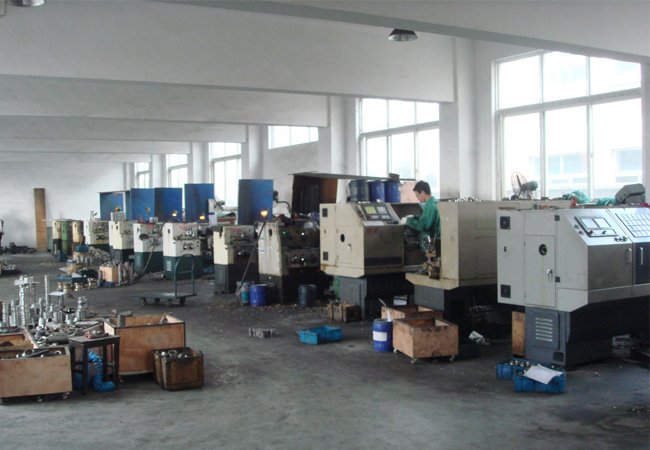Khmer
- Afrikaans
- Albanian
- Amharic
- Arabic
- Armenian
- Azerbaijani
- Basque
- Belarusian
- Bengali
- Bosnian
- Bulgarian
- Catalan
- Cebuano
- Corsican
- Croatian
- Czech
- Danish
- Dutch
- English
- Esperanto
- Estonian
- Finnish
- French
- Frisian
- Galician
- Georgian
- German
- Greek
- Gujarati
- Haitian Creole
- hausa
- hawaiian
- Hebrew
- Hindi
- Miao
- Hungarian
- Icelandic
- igbo
- Indonesian
- irish
- Italian
- Japanese
- Javanese
- Kannada
- kazakh
- Khmer
- Rwandese
- Korean
- Kurdish
- Kyrgyz
- Lao
- Latin
- Latvian
- Lithuanian
- Luxembourgish
- Macedonian
- Malgashi
- Malay
- Malayalam
- Maltese
- Maori
- Marathi
- Mongolian
- Myanmar
- Nepali
- Norwegian
- Norwegian
- Occitan
- Pashto
- Persian
- Polish
- Portuguese
- Punjabi
- Romanian
- Russian
- Samoan
- Scottish Gaelic
- Serbian
- Sesotho
- Shona
- Sindhi
- Sinhala
- Slovak
- Slovenian
- Somali
- Spanish
- Sundanese
- Swahili
- Swedish
- Tagalog
- Tajik
- Tamil
- Tatar
- Telugu
- Thai
- Turkish
- Turkmen
- Ukrainian
- Urdu
- Uighur
- Uzbek
- Vietnamese
- Welsh
- Bantu
- Yiddish
- Yoruba
- Zulu
Telephone: +86 13120555503
Email: frank@cypump.com
ធ្នូ . 25, 2024 04:14 Back to list
sewage effluent pumps
Sewage Effluent Pumps An Essential Component of Wastewater Management
In the realm of wastewater management, sewage effluent pumps play a crucial role, ensuring the effective transport and disposal of wastewater and sewage. As urbanization continues to grow, the need for efficient sewage management systems has become increasingly important. This article will explore the purpose, types, and significance of sewage effluent pumps in modern infrastructure.
Understanding Sewage Effluent Pumps
Sewage effluent pumps are specialized pumps designed to move sewage and wastewater from collection points to treatment facilities or disposal sites. Unlike standard pumps, these pumps handle not just water but also solid waste, making them vital in maintaining sanitation and public health. The importance of these pumps cannot be overstated; they are essential in preventing the overflow of sewage and the associated health hazards that come with it.
Types of Sewage Effluent Pumps
There are several types of sewage effluent pumps, each designed for specific applications and operating conditions
1. Submersible Pumps These pumps are installed directly in sewage tanks or basins. They operate underwater, which reduces the need for priming and allows for efficient pumping of sewage. Submersible pumps are widely utilized in residential and municipal wastewater systems.
2. Effluent Pumps Specifically designed to handle effluent or graywater – wastewater that does not contain significant amounts of contaminants – these pumps are ideal for applications such as irrigation or reuse systems. They can generally handle solids up to ¾ inch in diameter.
3. Wastewater Pumps These pumps are used for transporting raw sewage or wastewater containing large solids. They are designed to withstand harsh conditions and are often employed in commercial and industrial settings.
4. Self-Priming Pumps These pumps are capable of drawing water into the pump without manual priming, making them perfect for sites where the sewage level may fluctuate significantly.
The Role of Sewage Effluent Pumps in Wastewater Treatment
sewage effluent pumps

The primary function of sewage effluent pumps is to transport effluent from one point to another, typically from the collection area to the treatment facility
. In municipal settings, these pumps are integral in moving sewage from household plumbing systems to larger municipal systems for processing.Sewage treatment plants rely on these pumps to ensure a steady and efficient flow of sewage, which allows for continuous and effective treatment. Efficient wastewater transport minimizes the risk of overflow or backup, thereby protecting water sources and public health.
Benefits of Using Sewage Effluent Pumps
The advantages of incorporating sewage effluent pumps into wastewater systems are numerous. First and foremost, they enhance the efficiency of sewage transport, reducing the risk of environmental contamination. Properly functioning pumps help prevent sewage overflows, which can lead to public health crises and costly cleanup operations.
Additionally, modern sewage effluent pumps are designed for reliability and longevity. Many models are equipped with advanced monitoring technology that allows for real-time assessments of their operation, enabling early detection of potential issues. This proactive maintenance can lead to significant cost savings and uninterrupted service.
Furthermore, the implementation of energy-efficient pumps contributes to sustainable practices in wastewater management. By reducing energy consumption, municipalities can lower their operating costs and minimize their carbon footprint.
Challenges and Future Trends
Despite their vital role, sewage effluent pumps face several challenges, including clogging, wear and tear, and the need for regular maintenance. To address these issues, manufacturers are continuously developing newer technologies, such as automatic cleaning systems and smarter control panels.
Looking ahead, the integration of IoT (Internet of Things) technology in sewage effluent pumps presents exciting prospects. Smart pumps can provide real-time data on performance and predict failures, leading to improved operational efficiency and reduced downtime.
Conclusion
Sewage effluent pumps are essential for effective wastewater management, crucially affecting public health and environmental protection. As technology advances, these pumps will likely become more efficient, sustainable, and integrated into smart city infrastructure. Investing in reliable sewage effluent pumping solutions will remain a priority as urban landscapes continue to evolve, ensuring that our cities remain clean and safe for all inhabitants.
-
Horizontal Split Case Pump with GPT-4 Turbo | High Efficiency
NewsAug.01,2025
-
ISG Series Pipeline Pump - Chi Yuan Pumps | High Efficiency, Durable Design
NewsAug.01,2025
-
Advanced Flue Gas Desulfurization Pump with GPT-4 Turbo | Durable & Efficient
NewsJul.31,2025
-
ISG Series Vertical Pipeline Pump - Chi Yuan Pumps | Advanced Hydraulic Design&Durable Construction
NewsJul.31,2025
-
ISG Series Vertical Pipeline Pump - Chi Yuan Pumps | Energy Efficient & Low Noise
NewsJul.31,2025
-
pipeline pump - Chi Yuan Pumps Co., LTD.|High Efficiency&Low Noise
NewsJul.31,2025










